If ISI and RAW sit together, there would be a significant decrease in terrorism: Bilawal
Bilawal condemns India’s May 7 strikes inside Pakistan as violations of the UN Charter and international law
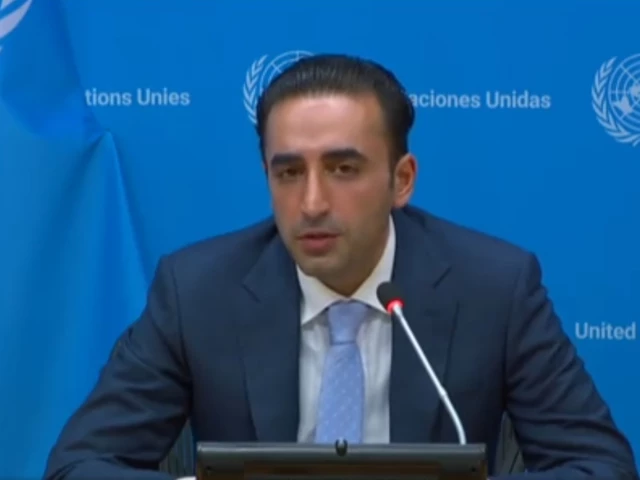
Bilawal Bhutto Zardari has stated that if ISI and RAW sat down and worked together, there would be a significant decrease in terrorism both within India and Pakistan. The Pakistan Peoples Party (PPP) chairman said this while addressing a media briefing at the UN Headquarters in New York on Tuesday.
He maintained that in terms of the number of terrorist attacks, more terrorist attacks take place in Pakistan than in India. "Ultimately, the fact of the matter is that above and beyond this accusation and counter-accusation and this finger pointing, what would actually be more effective would be if Pakistan and India were to work together to combat terrorism," he said.
"Pakistan has been a very responsible partner in the fight against terrorism. We have suffered in this fight and grown through our combat experience with terrorists. We have learned our lessons; now it is time for the world to learn theirs," he added.
Pakistan only ever acted in self defence. We never initiated any violence against India. On the first night when their planes attacked our country, Pakistan’s military responded with precision. PAF only targeted and downed six planes because we believed those six planes were the… pic.twitter.com/oG6e8YWlfZ
— PPP (@MediaCellPPP) June 3, 2025
Bilawal, leading a high-level parliamentary delegation, condemned India’s illegal strikes inside Pakistan on May 7, calling them a violation of the United Nations Charter and international law. He said the attacks targeted civilian infrastructure, places of worship, dams, and water and energy facilities, causing civilian casualties, including women and children.
“Pakistan would still like to cooperate with India to combat terrorism. We can’t leave the fate of 1.5 or 1.7 billion people in the hands of non-state actors and terrorists, allowing them to decide on a whim that two nuclear-armed powers should go to war. This is the new normal — the new abnormal that the Indian government is trying to impose on the region,” he maintained.
I think it's very telling that it took India a whole month to admit that it had lost those six planes. And I think it goes to show, there was one country telling the truth… the truth to its people, the truth to the international community, and the truth to the media. And another… pic.twitter.com/hA7C4uJIBs
— PPP (@MediaCellPPP) June 3, 2025
Bilawal stated, “At the moment, Pakistan is willing to put all cards on the table. Let’s talk about terrorism, let’s talk about Kashmir, let’s talk about water—let’s make peace. We are not shying away from any investigation. In fact, despite having no legal obligation under international law, we presented ourselves to international accountability because of the confidence we have that our hands are clean.
There is only one country that is running away from dialogue, running away from investigation, refusing to accept international law, and refusing to accept the UN Charter. So, either we decide that the UN Charter doesn’t apply, international law doesn’t apply, and therefore it no longer applies to India.
All of us who do believe in international law will continue to insist that we abide by this international law, but all parties must also abide by this international law—whether it comes to the issue of Kashmir, terrorism, or, most basically and importantly, the Indus Water Treaty.”
The difference between 2019 and 2025 is we went to war, and the consequences of this conflict are that we are now in a more precarious position where unfortunately, we feel, its not a question of if but when the next war is fought - Chairman PPP @BBhuttoZardari's press briefing… pic.twitter.com/GN7FJaJs6h
— PPP (@MediaCellPPP) June 3, 2025
He blamed India for using the April 22 Pahalgam attack in Indian Illegally Occupied Jammu and Kashmir (IIOJK) as a pretext for aggression. “We express our sympathy with the victims of terrorism and Pakistan has consistently condemned terrorism in all its forms,” he added.
Bilawal recalled that following the Pahalgam attack, Prime Minister Shehbaz Sharif publicly offered Pakistan’s cooperation in any impartial international investigation, confident of Pakistan’s innocence. However, India rejected the offer and launched strikes, to which Pakistan responded in self-defence by downing six Indian planes that had attacked its territory.
He added, “If there’s a terrorist attack anywhere in India, anywhere in IIOJK, it means war with Pakistan. And reciprocity would mean that any terrorist attack in Pakistan, particularly given our long list of complaints about Indian involvement in Balochistan and KP with BLA, means war with India. That is untenable; you can’t have no dispute resolution mechanisms between two nuclear-armed countries.”
In addition to initiating dialogue on terrorism, Bilawal expressed hope that both countries would agree on a complaint mechanism to jointly resolve bilateral issues. He identified the root cause of terrorism in IIOJK as the unresolved Kashmir agenda before the United Nations Security Council.
As far as India being inspired by the Israeli government, unfortunately it's being inspired in all the wrong ways. Its conduct outside of international law, its violation of international covenance… the United Nations charter. The arrogance with which it thought it could get… pic.twitter.com/wGptGRKBo4
— PPP (@MediaCellPPP) June 3, 2025
Bilawal confirmed that Israeli drones were used during India’s attack on Pakistan. “The actions of Indian government post 2019 to do with the imposing demographic changes within Kashmir does draw parallels by between what settler programme within the West Bank as far as being inspired, India being inspired by the Israeli government unfortunately its being inspired in all the wrong ways,” he said.
He added that India’s conduct was outside international law and the UN Charter, criticizing the arrogance with which it believed, “it could get away with this that you can just scream terrorism and it justifies that you can attack any Muslim country at whim.”
He remarked, “Modi is sort of Temu version of Netanyahu. It’s a little poor copy and we call upon the Indian government to not be inspired by the worst example possible.”
Bilawal called out India for using terrorism allegations to demonise Muslims within its borders and suppress legitimate opposition in Kashmir. He said the Indian government labels all Kashmiris opposing its policies as terrorists, while only those attacking civilians should be considered terrorists.
He said that India finances and supports terrorist activities inside Pakistan, targeting not only Muslims but also Sikh activists globally. He cited Indian-sponsored attacks on Sikh activists in Pakistan, Canada, and the United States, describing such actions as part of a broader criminal campaign.
He further criticised India’s ruling BJP and RSS policies toward Muslim minorities as oppressive and warned against demonizing the entire Pakistani population based on the actions of a few terrorists.
Terrorism in general, is used by India to demonize Muslims within their territory. I’m not specifically limiting it to this attack, but the Indian political environment is such that the word terrorist is used as a wolf whistle to either whip up sentiment against Muslim minorities… pic.twitter.com/GuSfC3969T
— PPP (@MediaCellPPP) June 3, 2025
Bilawal also criticised India’s approach during and after the conflict, relying on disinformation and unjustly labeling Muslims as terrorists. He said, “During the conflict, India relied on disinformation, post conflict India is still relying on disinformation.”
He condemned the practice of showing a photo of a man with a beard to accuse him of terrorism, clarifying, “This man is not a terrorist. Pakistan happens to have a name similar to one of the sanctioned people but he is not a terrorist.”
Bilawal called on the Indian government to “be honest with themselves, to be honest with their people,” warning that “the people of Pakistan and the people of India are less safe today than they were yesterday.” He highlighted the lack of cooperation on terrorism, saying, “We have not discussed terrorism... we have no intelligence sharing over terrorism, we have no coordination over terrorism.”
He questioned India’s strategy of responding to attacks with military strikes, asking, “Does that bode well for investment in India? Does that mean their people’s lives are more secure? Does it deter terrorists or does it encourage terrorism?”
He urged India to introspect, stating, “Their strategy is not working... not all Pakistanis are terrorists no matter what the government says.” He emphasised that “they will find it far more efficient, far more effective to work with the government of Pakistan... to combat the joint threat of terrorism.”
As far as the hurdles we face in the UN and in general as far as the Kashmir cause is concerned, that still exists. Another topic that we have been emphasizing on is obviously the issue of terrorism. As you’re all well aware, we have come here to the United Nations with dossier… pic.twitter.com/gToitT8hw6
— PPP (@MediaCellPPP) June 3, 2025
On diplomatic efforts, Bilawal said Pakistan’s recent engagements at the United Nations and with international bodies such as the Organisation of Islamic Cooperation and E10 have been productive.
He highlighted widespread international respect for Pakistan’s stance on the Indus Waters Treaty and commitment to dialogue and peace, including Pakistan’s offer to investigate the recent attack during the conflict.



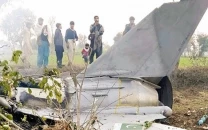
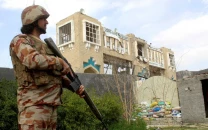
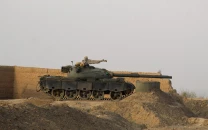

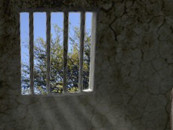



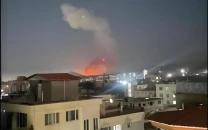
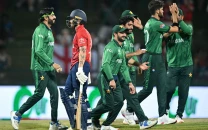
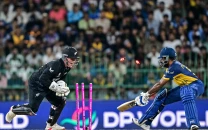
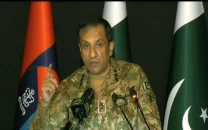
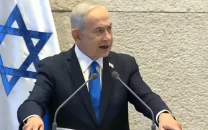






COMMENTS
Comments are moderated and generally will be posted if they are on-topic and not abusive.
For more information, please see our Comments FAQ